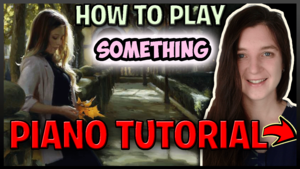
[xyz-ihs snippet="NavigationLinksBlock-Common"]
Do-Re-Mi
by Rodgers & Hammerstein
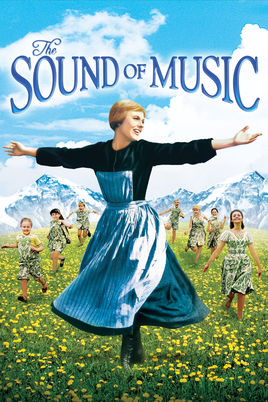
The "Do-Re-Mi" is a show tune from the 1959 Rodgers and Hammerstein musical The Sound of Music. Within the story, it is used by Maria to teach the notes of the major musical scale to the Von Trapp children who learn to sing for the first time, even though their father disallowed frivolity after their mother's death. Each syllable of the musical solfège system appears in the song's lyrics, sung on the pitch it names. Rodgers was helped in its creation by long-time arranger Trude Rittmann who devised the extended vocal sequence in the song. According to assistant conductor Peter Howard, the heart of the number – in which Maria assigns a musical tone to each child, like so many Swiss bell ringers – was devised in rehearsal by Rittmann (who was credited for choral arrangements) and choreographer Joe Layton. The fourteen note and tune lyric – 'when you know the notes to sing...' – were provided by Rodgers and Hammerstein; the rest, apparently, came from Rittmann. Howard: 'Rodgers allowed her to do whatever she liked. When we started doing the staging of it, Joe took over. He asked Trude for certain parts to be repeated, certain embellishments.
[video width="640" height="360" mp4="https://www.easypianoonline.com/wp-content/uploads/2019/03/Do-Re-Mi.mp4"][/video]
Julie Andrews
Lyrics
Let's start at the very beginning
A very good place to start
When you read you begin with A-B-C
When you sing you begin with do-re-mi
Do-re-mi, do-re-mi
The first three notes just happen to be
Do-re-mi, do-re-mi
Do-re-mi-fa-so-la-ti
[spoken]
Let's see if I can make it easy
Doe, a deer, a female deer
Ray, a drop of golden sun
Me, a name I call myself
Far, a long, long way to run
Sew, a needle pulling thread
La, a note to follow Sew
Tea, a drink with jam and bread
That will bring us back to Do (oh-oh-oh)
Do-re-mi-fa-so-la-ti-do
So-do!
Now children, do-re-mi-fa-so and so on
are only the tools we use to build a song.
Once you have these notes in your heads,
you can sing a million different tunes by mixing them up.
Like this.
So Do La Fa Mi Do Re
[spoken]
Can you do that?
[Children:]
So Do La Fa Mi Do Re
[Maria:]
So Do La Ti Do Re Do
[Children:]
So Do La Ti Do Re Do
[Maria:]
[spoken]
Now, put it all together.
So Do La Fa Mi Do Re, So Do La Ti Do Re Do
[Maria:]
[spoken]
Good!
[Brigitta:]
[spoken]
But it doesn't mean anything.
[Maria:]
[spoken]
So we put in words. One word for every note. Like this.
When you know the notes to sing
You can sing most anything
[spoken]
Together!
When you know the notes to sing
You can sing most anything
Doe, a deer, a female deer
Ray, a drop of golden sun
Me, a name I call myself
Far, a long, long way to run
Sew, a needle pulling thread
La, a note to follow Sew
Tea, a drink with jam and bread
That will bring us back to Do
Do Re Mi Fa So La Ti Do
Do Ti La So Fa Mi Re
Do Mi Mi
Mi So So
Re Fa Fa
La Ti Ti
[Repeat above verse 4x as Maria sings]
When you know the notes to sing
You can sing most anything
Doe, a deer, a female deer
Ray, a drop of golden sun
Me, a name I call myself
Far, a long, long way to run
Sew, a needle pulling thread
La, a note to follow Sew
Tea, a drink with jam and bread
That will bring us back to
Do . . . So Do
Re . . . La Fa
Mi . . . Mi Do
Fa . . . Re
So . . . So Do
La . . . La Fa
Ti . . . La So Fa Mi Re
Ti Do - oh - oh Ti Do -- So Do
Songwriters: Oscar Hammerstein Ii / Richard Rodgers

[[xyz-ihs snippet="NavigationLinksBlock-Common"]
Don't Cry for Me Argentina
by Andrew Lloyd Webber
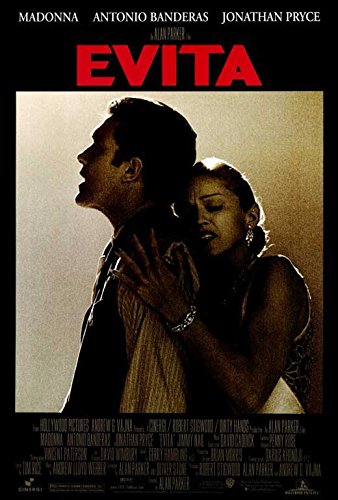
The "Don't Cry for Me Argentina" is a song recorded by Julie Covington for the 1976 concept album, Evita, and was later included in the 1978 musical of the same name. The song was written and composed by Andrew Lloyd Webber and Tim Rice while they were researching the life of Argentinian leader Eva Perón. It appears at the opening and near the end of the show, initially as the spirit of the dead Eva exhorting the people of Argentina not to mourn her, and finally during Eva's speech from the balcony of the Casa Rosada. Covington was signed by the songwriters for the track, based on her previous work in musicals.
In 1996, American singer Madonna starred in the film adaptation of the musical in the title role. Her version of "Don't Cry for Me Argentina" was released as the second single from the film soundtrack on 4 February 1997. It received positive reviews from music critics who praised her vocal performance. A separate version called the "Miami Mix", which included re-recorded vocals in English and Spanish and an Argentinean bandoneon in the song's intro, was promoted to radio. The song reached number one in France, Spain, and the European Hot 100 Singles, while the remix topped the US Dance Club Songs chart. The song also reached the top ten on the US Billboard Hot 100 and several other nations, and received gold certifications from five countries.
"Don't Cry for Me Argentina" has been covered by multiple artists, including The Carpenters, Olivia Newton-John, and Sinéad O'Connor as well as actors Lea Michele and Chris Colfer from the TV series Glee.
[video width="640" height="360" mp4="https://www.easypianoonline.com/wp-content/uploads/2019/03/NicoleScherzingerDontCryForMeArgentina2013.mp4"][/video]
Nicole Scherzinge (live performance 2013)
Lyrics
It won't be easy, you'll think it strange
When I try to explain how I feel
That I still need your love after all that I've done
You won't believe me, all you will see is a girl you once knew
Although she's dressed up to the nines
At sixes and sevens with you
I had to let it happen, I had to change
Couldn't stay all my life down at heel
Looking out of the window, staying out of the sun
So I chose freedom, running around trying everything new
But nothing impressed me at all
I never expected it to
Don't cry for me, Argentina
The truth is, I never left you
All through my wild days, my mad existence
I kept my promise
Don't keep your distance
And as for fortune, and as for fame
I never invited them in
Though it seemed to the world they were all I desired
They are illusions, they're not the solutions they promised to be
The answer was here all the time
I love you, and hope you love me
Don't cry for me, Argentina
Don't cry for me, Argentina
The truth is, I never left you
All through my wild days, my mad existence
I kept my promise
Don't keep your distance
Have I said too much?
There's nothing more I can think of to say to you
But all you have to do is look at me to know
That every word is true
Songwriters: Andrew Lloyd Webber / Tim Rice

[xyz-ihs snippet="NavigationLinksBlock-Common"]
The Legend of Zelda
(from video game)
by Koji Kondo
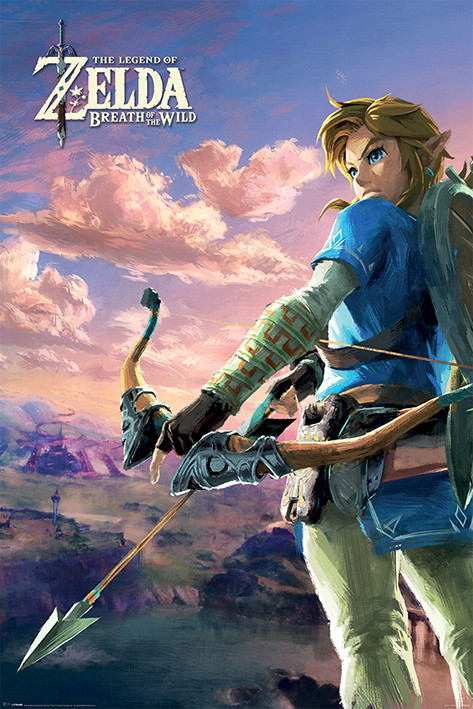
The "The Legend of Zelda" is an action-adventure video game developed and published by Nintendo and designed by Shigeru Miyamoto and Takashi Tezuka. Set in the fantasy land of Hyrule, the plot centers on a boy named Link, the playable protagonist, who aims to collect the eight fragments of the Triforce of Wisdom in order to rescue Princess Zelda from the antagonist, Ganon. During the course of the game, the player navigates throughout the overworld and several dungeons, defeating enemies and uncovering secrets along the way.
[video width="640" height="360" mp4="https://www.easypianoonline.com/wp-content/uploads/2019/03/TheLegendOfZelda.mp4"][/video]
The Recording of The Legend of Zelda 25th Anniversary Special Orchestra CD

[xyz-ihs snippet="NavigationLinksBlock-Common"]
Cinema Paradiso
by Andrea Morricone
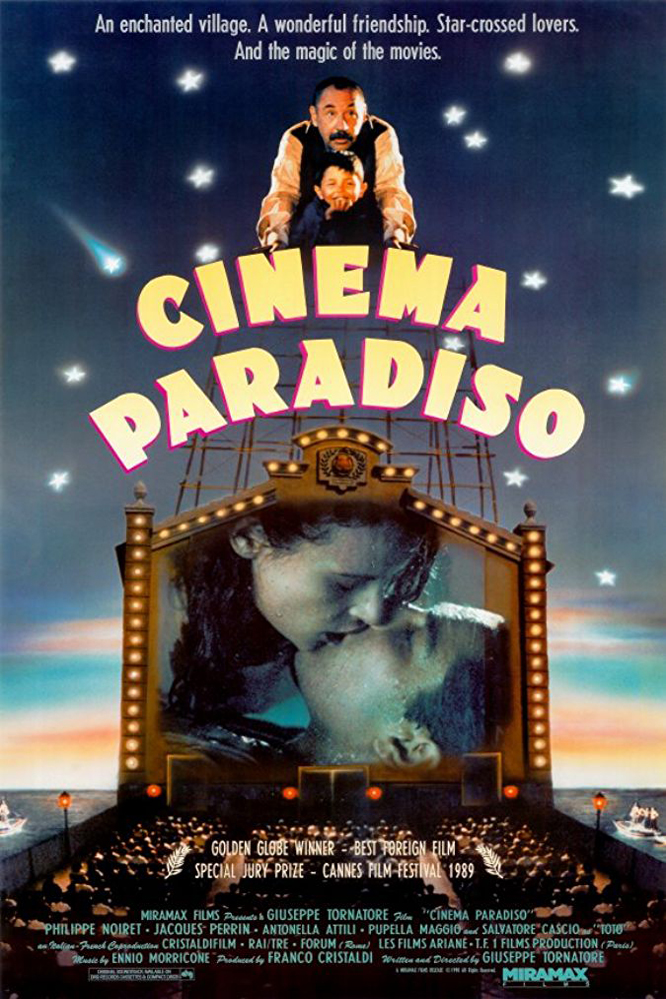
The " Cinema Paradiso (Italian: Nuovo Cinema Paradiso, Italian pronunciation: [ˈnwɔːvo ˈtʃiːnema paraˈdiːzo], "New Paradise Cinema")" is a 1988 Italian drama film written and directed by Giuseppe Tornatore. The film stars Jacques Perrin, Philippe Noiret, Leopoldo Trieste, Marco Leonardi, Agnese Nano and Salvatore Cascio, and was produced by Franco Cristaldi and Giovanna Romagnoli, while the music score was composed by Ennio Morricone along with his son, Andrea. It won the Academy Award for Best Foreign Language Film at the 62nd Academy Awards.
[video width="640" height="360" mp4="https://www.easypianoonline.com/wp-content/uploads/2019/03/Josh_Groban-_Cinema_Paradiso.mp4"][/video]
Josh Groban
Lyrics (Italian)
Se tu fossi nei miei occhi per un giorno
Vedresti la bellezza che piena d'allegria
Io trovo dentro gli occhi tuoi
E nearo se magia o lealta
Se tu fossi nel mio cuore per un giorno
Potreste avere un'idea
Di cio che sento io
Quando m'abbracci forte a te
E petto a petto, noi
Respiriamo insieme
Protagonista del tuo amor
Non so se sia magia o lealta
Se tu fossi nella mia anima un giorno
Sapresti cosa sono in me
Che m'innamorai
Da quell'istante insieme a te
E cio che provo e
Solamente amore
Lyrics (English translation)
If you were in my eyes for one day
You could see the full beauty of the joy
I find in your eyes
And it isn’t magic or loyalty
If you were in my heart for a day
You would have an idea
Of what I feel
When you hold me strongly to you
Heart to heart
Breathing together
Protagonist of your love
I don’t know if it’s magic or loyalty
If you were in my soul for a day
You would know what is inside me
That I fell in love
At that instant, together with you
And what I sense
It’s only love

[xyz-ihs snippet="NavigationLinksBlock-Common"]
Autumn Leaves
by Joseph Kosma
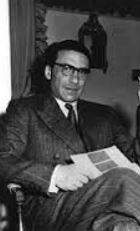
The "Autumn Leaves" is one of the most recorded songs in the world. The original name of the song was Les Feuilles Mortes (Dead Leaves) composed by Joseph Kosma, with lyrics written by the poet, Jacques Prévert in 1945, in France. Later in 1947, English lyrics were written by the Academy Award winning lyricist and songwriter Johnny Mercer. It then became a pop and jazz standard.
Kosma was a native of Hungary who was introduced to Prevert in Paris. They collaborated on the song "Les Feuilles mortes" ("The Dead Leaves") for the 1946 film Les portes de la nuit where it was sung by Irène Joachim. Kosma was influenced by a piece of ballet music, "Rendez-vous" written for Roland Petit, which was itself borrowed partially from "Poème d'octobre" by Jules Massenet. Johnny Mercer wrote English lyrics and gave it the title "Autumn Leaves".
[video width="640" height="360" mp4="https://www.easypianoonline.com/wp-content/uploads/2019/03/Yves-Montand-_Autumn-Leaves.mp4"][/video]
Yves Montand
Lyrics (French)
Oh, je voudais tant que tu te souviennes
Des jours heureux où nous étions amis
En ce temps-là la vie était plus belle
Et le soleil plus brûlant qu'aujourd'hui.
Les feuilles mortes se ramassent à la pelle
Tu vois, je n'ai pas oublié
Les feuilles mortes se ramassent à la pelle
Les souvenirs et les regrets aussi.
Et le vent du Nord les emporte,
Dans la nuit froide de l'oubli.
Tu vois je n'ai pas oublié,
La chanson que tu me chantais...
Les feuilles mortes se ramassent à la pelle
Les souvenirs et les regrets aussi,
Mais mon amour silencieux et fidèle
Sourit toujours et remercie la vie.
Je t'aimais tant, tu étais si jolie,
Comment veux-tu que je t'oublie?
En ce temps-là la vie était plus belle
Et le soleil plus brûlant qu'aujourd'hui.
Tu étais ma plus douce amie
Mais je n'ai que faire des regrets.
Et la chanson que tu chantais,
Toujours, toujours je l'entendrai.
C'est une chanson qui nous ressemble,
Toi tu m'aimais, moi je t'aimais
Et nous vivions, tous deux ensemble,
Toi qui m'aimais, moi qui t'aimais.
Mais la vie sépare ceux qui s'aiment,
Tout doucement, sans faire de bruit
Et la mer efface sur le sable
Les pas des amants désunis.
C'est une chanson qui nous ressemble,
Toi tu m'aimais et je t'aimais
Et nous vivions tous deux ensemble,
Toi qui m'aimais, moi qui t'aimais.
Mais la vie sépare ceux qui s'aiment,
Tout doucement, sans faire de bruit
Et la mer efface sur le sable
Les pas des amants désunis
[video width="640" height="360" mp4="https://www.easypianoonline.com/wp-content/uploads/2019/03/Eva_Cassidy-_Autumn-Leaves.mp4"][/video]
Eva Cassidy
Lyrics (English)
The falling leaves
Drift by the window
The autumn leaves
Of red and gold
I see your lips
The summer kisses
The sunburned hands
I used to hold
Since you went away
The days grow long
And soon I'll hear
Old winter's song
But I miss you most of all
My darling
When autumn leaves
Start to fall

[xyz-ihs snippet="NavigationLinksBlock-Common"]
Aerith's Theme
by Nobuo Uematsu
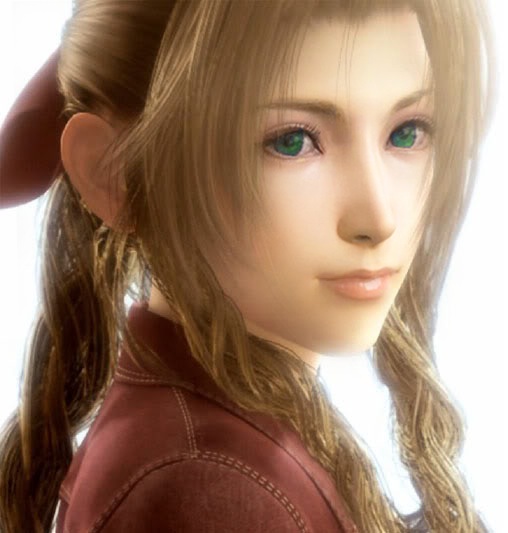
The "Aerith Gainsborough"(Japanese: エアリス・ゲインズブール Hepburn: Earisu Geinzubūru), transliterated as Aeris Gainsborough in the English releases of Final Fantasy VII and Final Fantasy Tactics—is a player character in Square's (now Square Enix) role-playing video game Final Fantasy VII. She was designed by Tetsuya Nomura with influence from Yoshinori Kitase, Hironobu Sakaguchi and Yoshitaka Amano.
In Final Fantasy VII, she is a young woman who joins the eco-terrorist organization AVALANCHE. As the story progresses, AVALANCHE begin to pursue the game's antagonist Sephiroth, and the player learns that she is the last surviving Cetra, or "Ancient", one of the planet's oldest races. She has also appeared in the later-released Compilation of Final Fantasy VII and Kingdom Hearts series.
Her voice actor is Maaya Sakamoto in Japanese. In English releases, her voice actors are singer and actress Mandy Moore in Kingdom Hearts, actress Mena Suvari in Kingdom Hearts II and Final Fantasy VII Advent Children, and actress Andrea Bowen in Crisis Core: Final Fantasy VII. The character and the events surrounding her death in Final Fantasy VII have met with an overall positive reception from critics and fans.
[video width="640" height="360" mp4="https://www.easypianoonline.com/wp-content/uploads/2019/03/Aeriths_Theme_Orchestra.mp4"][/video]
Aeris' Theme (Final Fantasy VII) - Conducted by Taizou Takemoto, Tokyo

[xyz-ihs snippet="NavigationLinksBlock-Common"]
Besame Mucho
by Consuelo Velasques/Velázquez
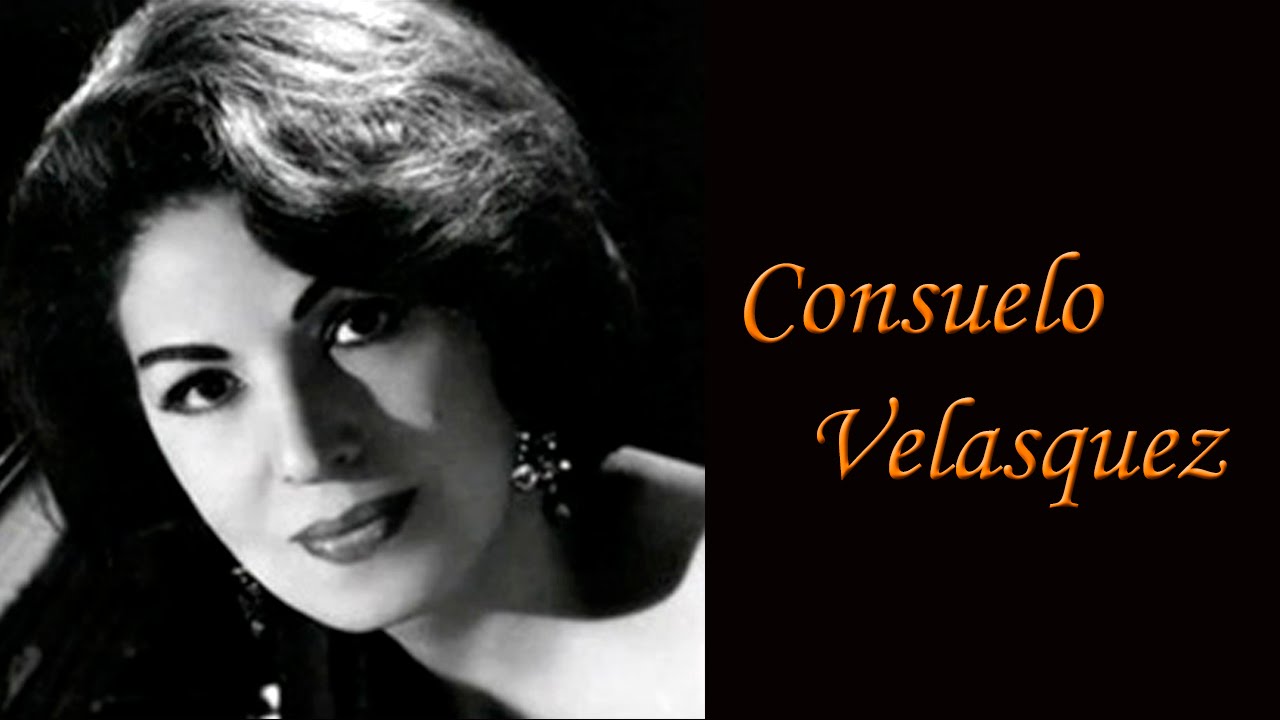
The "Bésame Mucho (kiss me a lot)" is a song written in 1940 by Mexican songwriter Consuelo Velázquez (Consuelo Velasquez). A famous version is sung by Trio Los Panchos.
It is one of the most famous boleros, and was recognized in 1999 as the most sung and recorded Mexican song in the world.
The song appeared in the film Follow the Boys (5 May 1944) when it was played by Charlie Spivak and his Orchestra and in Cowboy and the Senorita (13 May 1944) with vocal by Dale Evans.
[video width="640" height="360" mp4="https://www.easypianoonline.com/wp-content/uploads/2019/03/BesameMuchoLosPanchos.mp4"][/video]
Lyrics (Spanish)
Bésame, bésame mucho,
como si fuera esta noche
la última vez.
Bésame, bésame mucho,
que tengo miedo perderte,
perderte después.
Quiero tenerte muy cerca,
mirarme en tus ojos,
y estar junto a ti.
Piensa que tal vez mañana
estaré muy lejos,
muy lejos de aquí.
Bésame, bésame mucho,
como si fuera esta noche
la última vez.
Bésame, bésame mucho,
que tengo miedo perderte,
perderte después.
Quiero tenerte muy cerca,
mirarme en tus ojos,
y estar junto a ti.
Piensa que tal vez mañana
estaré muy lejos,
muy lejos de aquí.
Bésame, bésame mucho,
como si fuera esta noche
la última vez.
Bésame, bésame mucho,
que tengo miedo perderte,
perderte después.
[video width="640" height="360" mp4="https://www.easypianoonline.com/wp-content/uploads/2019/03/BesameMuchoDeanMartin.mp4"][/video]
Lyrics (English)
Besame, Besame Mucho
Each time I cling to your kiss, I hear music divine
Besame, Besame mucho
Hold me my darling and say that you'll always be mine
This joy is something new, my arms enfolding you
Never knew this thrill before
Who ever thought I'd be holding you close to me
Whispering; it's you I adore
Dearest one, if you should leave me,
Each little dream would take wing, and my life would be thrue
Besame, Besame mucho
Love me forever and make all my dreams come true
Besame
Besame mucho
Love me forever and make all my dreams come true

[xyz-ihs snippet="NavigationLinksBlock-Common"]
La Vie En Rose
by Édith Piaf
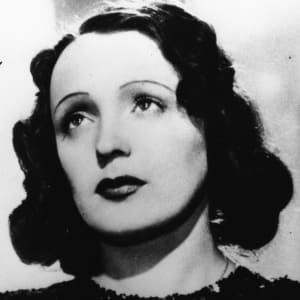
La Vie en Rose (Easy version) of the tutorial can be reached at the link below:

The "La Vie en rose (French pronunciation: [la vi ɑ̃ ʁoz]; French: Life in pink)" is the signature song of popular French singer Édith Piaf, written in 1945, popularized in 1946, and released as a single in 1947. The song became very popular in the US in 1950 with no fewer than seven different versions reaching the Billboard charts. These were by Tony Martin, Paul Weston, Bing Crosby (recorded June 22, 1950), Ralph Flanagan, Victor Young, and Louis Armstrong.
A version in 1977 by Jamaican singer Grace Jones was also a successful international hit. "La Vie en rose" has been covered by many other artists over the years, including a 1993 version by American singer Donna Summer. Harry James also recorded a version in 1950 on Columbia 38768. Bing Crosby recorded the song again for his 1953 album Le Bing: Song Hits of Paris.
[video width="640" height="360" mp4="https://www.easypianoonline.com/wp-content/uploads/2019/03/LaVieEnRose_EdithPiaf.mp4"][/video]
Lyrics
Des yeux qui font baisser les miens
Un rire qui se perd sur sa bouche
Voilà le portrait sans retouches
De l'homme auquel j'appartiens
Quand il me prend dans ses bras
Il me parle tout bas
Je vois la vie en rose
Il me dit des mots d'amour
Des mots de tous les jours
Et ça me fait quelque chose
Il est entré dans mon cœur
Une part de bonheur
Dont je connais la cause
C'est lui pour moi, moi pour lui dans la vie
Il me l'a dit, l'a juré pour la vie
Et dès que je l'aperçois
Alors je sens en moi
Mon cœur qui bat
Des nuits d'amour à plus finir
Un grand bonheur qui prend sa place
Des ennuis, des chagrins s'effacent
Heureux, heureux à en mourir
Quand il me prend dans ses bras
Il me parle tout bas
Je vois la vie en rose
Il me dit des mots d'amour
Des mots de tous les jours
Et ça me fait quelque chose
Il est entré dans mon cœur
Une part de bonheur
Dont je connais la cause
C'est toi pour moi, moi pour toi dans la vie
Il me l'a dit, l'a juré pour la vie
Et dès que je t'aperçois
Alors je sens dans moi
Mon cœur qui bat
La la, la la, la la
La la, la la, ah la
La la la la
Songwriters: Edith Piaf

[xyz-ihs snippet="NavigationLinksBlock-Common"]
Corpse Bride
by Danny Elfman
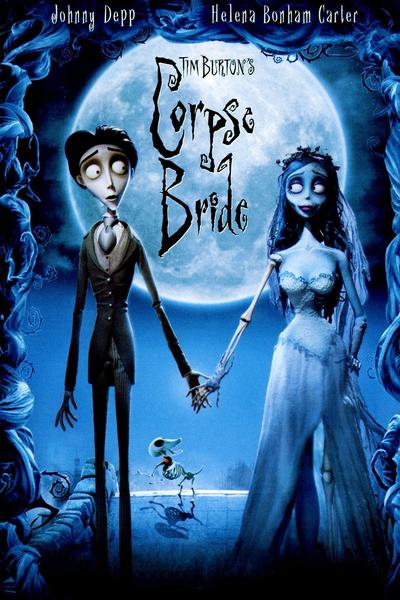
The "Corpse Bride (also known as Tim Burton's Corpse Bride)" is a 2005 British-American stop-motion animated musical dark comedy film directed by Mike Johnson and Tim Burton with a screenplay by John August, Caroline Thompson and Pamela Pettler based on characters created by Burton and Carlos Grangel. The plot is set in a fictional Victorian era village in Europe. Johnny Depp leads the cast as the voice of Victor, while Helena Bonham Carter voices Emily, the titular bride. Corpse Bride is the third stop-motion feature film produced by Burton and the first directed by him (the previous two films, The Nightmare Before Christmas and James and the Giant Peach, were directed by Henry Selick). This is also the first stop-motion feature from Burton that was distributed by Warner Bros. Pictures. It was dedicated to executive producer Joe Ranft, who died in a car accident during production.
The film was a critical and commercial success and was nominated for the 78th Academy Awards for Best Animated Feature, but lost to Wallace & Gromit: The Curse of the Were-Rabbit, which also starred Bonham Carter. It was shot with Canon EOS-1D Mark II digital SLRs, rather than the 35mm film cameras used for Burton's previous stop-motion film The Nightmare Before Christmas (1993).
[video width="640" height="360" mp4="https://www.easypianoonline.com/wp-content/uploads/2019/02/CorpseBrideMainTitle.mp4"][/video]

[xyz-ihs snippet="NavigationLinksBlock-Common"]
Till There Was You
by Meredith Willson
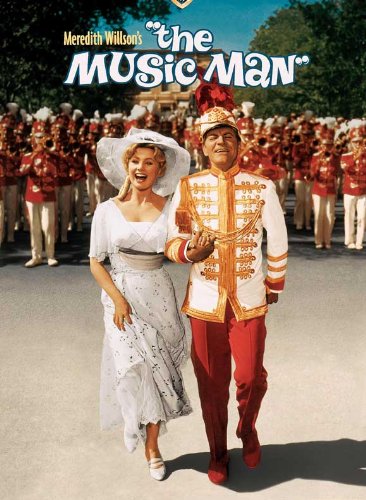
" Till There Was You " is a show tune written in 1950 by Meredith Willson, originally entitled "Till I Met You." It was originally recorded October 25, 1950 by Meredith Willson & his Orchestra and Eileen Wilson. The song was retitled and used in his musical play The Music Man (1957), and which also appeared in the 1962 movie version. It is sung by librarian Marian Paroo (performed by Barbara Cook on Broadway, and by Shirley Jones in the film) to "Professor" Harold Hill (portrayed on Broadway and in the film by Robert Preston) toward the end of Act Two.
[video width="640" height="360" mp4="https://www.easypianoonline.com/wp-content/uploads/2019/03/The_Music_Man_Shirley_Jones_Till_There_Was_You.mp4"][/video]
"Till There Was You" was recorded by The Beatles in 1963 and released on their second album With the Beatles (1963) (United Kingdom) and Meet the Beatles! (1964) (United States). It was the only song from a Broadway show released by the band.
The Beatles' version is sung by Paul McCartney, who is accompanied by George Harri-son and John Lennon on dueling acoustic, classical guitars played in a Spanish style over a bossa nova bongo beat played by Ringo Starr. The song was produced by George Martin. Its guitar solo is by George Harrison. The widow of Meredith Willson, the composer of The Music Man, has stated that her husband's estate eventually received more income from the royalties of the Beatles recordings of "Till There Was You" than it originally received from the actual play.
[video width="640" height="360" mp4="https://www.easypianoonline.com/wp-content/uploads/2021/06/TillThereWasYou-TheBeatles.mp4"][/video]
Lyrics
There were bells on the hill
But I never heard them ringing
No, I never heard them at all
Till there was you
There were birds in the sky
But I never saw them winging
No, I never saw them at all
Till there was you
And there was music
And there were wonderful roses
They tell me
In sweet fragrant meadows of dawn, and dew
There was love all around
But I never heard it singing
No, I never heard it at all
Till there was you

[xyz-ihs snippet="NavigationLinksBlock-Common"]
Le Onde
by Ludovico Einaudi
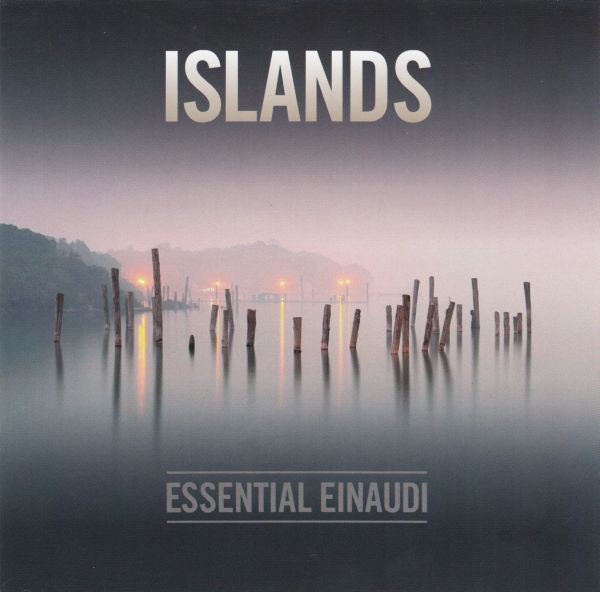
The "Le Onde" is a ballad composed by Harold is an album released in 1996 by the Italian pianist Ludovico Einaudi. The album is based on the novel The Waves by British writer Virginia Woolf, and was Einaudi's first solo piano album. The album enjoyed mainstream success, particularly in Italy and the UK.
The inside of the CD booklet reads "If it were a story it would be set on the seafront of a long beach. A beach without beginning and without end. The story of a man who walks along this shore and perhaps never meets anyone. His gaze lingers occasionally to look at some object or fragment brought from the sea. The footprints of a crab or a solitary seagull. I always take the sand, the sky, some clouds, the sea. Only the waves change, always the same and different, smaller. larger. Shorter. Longer."
[video width="640" height="360" mp4="https://www.easypianoonline.com/wp-content/uploads/2020/12/Ludovico-Einaudi-The-Waves-Le-Onde.mp4"]

[xyz-ihs snippet="NavigationLinksBlock-Common"]
Smile
by Charlie Chaplin

The "Smile" is a song based on an instrumental theme used in the soundtrack for Charlie Chaplin's 1936 movie Modern Times. Chaplin composed the music, inspired by Puccini's Tosca. John Turner and Geoffrey Parsons added the lyrics and title in 1954. In the lyrics, based on lines and themes from the film, the singer is telling the listener to cheer up and that there is always a bright tomorrow, just as long as they smile. "Smile" has become a popular standard since its original use in Chaplin's film.
Judy Garland sang a memorable version of "Smile" on The Ed Sullivan Show in 1963...
[video width="640" height="360" mp4="https://www.easypianoonline.com/wp-content/uploads/2019/03/Smile_Judy-Garland-TV-Show-1963-64.mp4"][/video]
Lyrics
Smile though your heart is aching,
Smile even though it's breaking,
When there are clouds in the sky, you'll get by,
If you smile through your pain and sorrow,
Smile and maybe tomorrow
You'll see the sun come shining through, for you.
Light up your face with gladness,
Hide every trace of sadness,
Although a tear may be ever so near,
That's the time (that's the time) you must keep on trying,
Smile, what's the use of crying,
You'll find that life is still worthwhile,
If you just smile.
Oh ooh yeah
That's the time (that's the time) you must keep on trying,
Smile what's the use of crying,
You'll find that life is still worthwhile,
If you just smile.
Smile though your heart is aching,
Smile even though it's breaking,
When there are clouds in the sky, you'll get by,
That's the time (that's the time) you must keep on trying,
Smile, what's the use of crying,
You'll find that life is still worthwhile,
If you just
You'll find that life is still worthwhile,
If you just smile.
Songwriters: Donat Roy Jackie Mittoo / Lily Rose Beatrice Allen / Iyiola Babatunde Babalola / Darren Emilio Lewis

[xyz-ihs snippet="NavigationLinksBlock-Common"]
Soul Coaxing or Âme câline
by Michel Polnareff
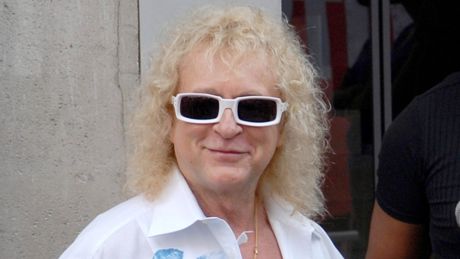
The "Soul Coaxing or Âme câline" is an instrumental tune recorded in 1967 by the Raymond Lefèvre orchestra and released in 1968. It was used as a theme tune for Radio Caroline, Radio Luxembourg and other radio stations, including some in the United States. It was issued on the Major Minor label in the UK, and reached #46 in the UK Singles Charts in May. It was also a hit in the U.S. on the Four Corners label, peaking at #37 on the Billboard Hot 100 chart in April at the end of a 12-week run.
It was written by Michel Polnareff, who originally recorded a vocal version of the song, and an English language version titled "If You Loved Me" was also recorded by American singer Peggy March. Other instrumental versions were recorded by Norrie Paramor, Franck Pourcel and Sounds Orchestral.
[video width="640" height="360" mp4="https://www.easypianoonline.com/wp-content/uploads/2019/03/Peggy_March_If_you_loved_me.mp4"][/video]
Brian Matthew gave a rare airing of the song on his "Sounds of the 60s" BBC Radio 2 show on 30 July 2011.
It is used as the hourly continuity signal on the online station Britain Radio 355.
Jerry Lang, presenter of Jerry's Jukebox on U105 in Northern Ireland, uses it daily as background music.
Lyrics
I'd give to you, everything that I now poses
I would surrender everything I own, if you loved me
All of my dreams, I would give for your sweet caress
I would be tender, yours and yours alone, if you loved me
If you could care, oh what would I do
My heart and soul, I'd give to you
Ask for the stars, I will gather them all for you
No there is nothing that I couldn't do, if you loved me
If you could care, oh what would I do
My heart and soul, I'd give to you
All of my dreams, I would give for your sweet caress
I would be tender, yours and yours alone, if you loved me
Ask for the stars, I will gather them all for you
No there is nothing that I couldn't do, if you loved me

[xyz-ihs snippet="NavigationLinksBlock-Common"]
Castle in the Sky
(Carrying you)
by Joe Hisaishi
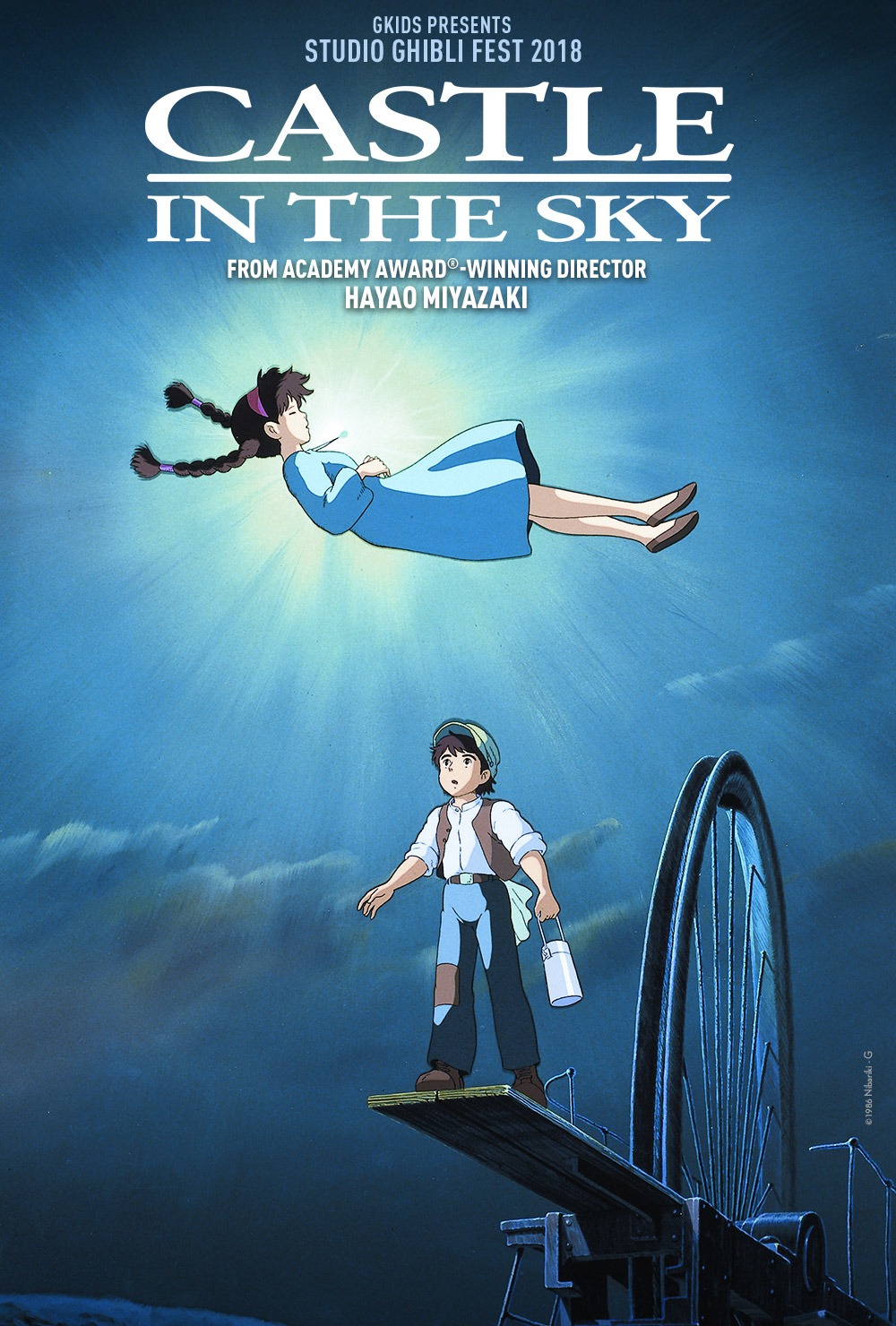
Easy version of the tutorial can be reached at the link below:

The "Castle in the Sky" (Japanese: 天空の城ラピュタ Hepburn: Tenkū no Shiro Rapyuta), known as Laputa: Castle in the Sky in Europe and Australia, is a 1986 Japanese animated steampunk fantasy-adventure film written and directed by Hayao Miyazaki. It was the very first film animated by Studio Ghibli and was animated for Tokuma Shoten. It follows the adventures of a young boy and girl attempting to keep a magic crystal from a group of military agents, while searching for a legendary floating castle. The film was distributed by Toei Kabushiki Kaisha.
Laputa: Castle in the Sky won the Animage Anime Grand Prix in 1986. The film has received positive reviews and grossed $15 million at the box office, and went on to gross a total of approximately $156 million in box office, home video and soundtrack sales. In Japanese polls of greatest animations, Castle in the Sky was voted the second best animated film at the 2006 Japan Media Arts Festival and was voted first place in a 2008 Oricon audience poll. Considered a milestone in the steampunk genre, Castle in the Sky has had a strong influence on Japanese popular culture, and has inspired numerous films, media and games, in Japan and internationally.
[video width="640" height="360" mp4="https://www.easypianoonline.com/wp-content/uploads/2019/03/CastleInTheSkyCarryingYou.mp4"][/video]
"Carrying You" by Joe Hisaishi @ Studio Ghibli Concert 2008 (Laputa: Castle in the Sky)
Lyrics
Ano chiheisen / Kagayaku no wa
Doko ka ni kimi wo / Kakushite iru kara
Takusan no hi ga / Natsukashii no wa
Ano doreka hitotsu ni
Kimi ga iru kara
Within those glittering lights on the horizon,
you must be hiding somewhere.
When I see those twinkling stars
I feel nostalgic because
I know you are in one of them.
Saa, dekakeyou!
Hitokire no PAN
NAIFU, RANPU kaban ni
Tsumekonde
Let's set out,
pack a bag with
a piece of bread,
a knife, a lamp,
Tousan ga nokoshita / Atsui omoi
Kaasan ga kureta / Ano manazashi
The passion that my father left me,
That look that my mother gave me.
Chikyuu wa mawaru / Kimi o kakushite
Kagayaku hitomi / Kirameku tomoshibi
Chikyuu wa mawaru / Kimi o nosete
Itsuka kitto deau / Bokura o nosete
The earth is spinning, concealing you
Your eyes are shining in the glittering light
The earth is spinning, carrying you
carrying us who shall meet someday.
Toosan ga nokoshita / Atsui omoi
Kaasan ga kureta / Ano manazashi
This passion is that my father gave me,
That look my mother gave me.
Chikyuu wa mawaru / Kimi o kakushite
Kagayaku hitomi / Kirameku tomoshibi
Chikyuu wa mawaru / Kimi o nosete
Itsuka kitto deau / Bokura o nosete
The earth is spinning, concealing you
Your eyes are shining in the glittering light
The earth is spinning, carrying you,
carrying us who shall meet someday.

[xyz-ihs snippet="NavigationLinksBlock-Common"]
Over The Rainbow
(Jazzy version)
by Harold Arlen
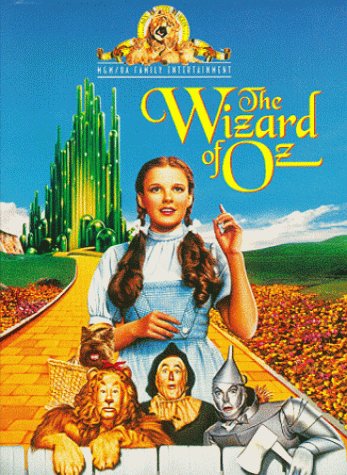 <>/p>
<>/p>
Manhattan Jazz Orchestra - OVER THE RAINBOWThe "Over the Rainbow" is a ballad composed by Harold Arlen with lyrics by Yip Harburg. It was written for the movie The Wizard of Oz
Jazzy version is introduced by David Matthews and Friends. This fantastic trio take on the well loved movie classic from the Wizard of Oz. Featuring Carolyn Leonhart Vocals, Bill Mays Piano, Eddie Gomez Bass.
[video width="640" height="360" mp4="https://www.easypianoonline.com/wp-content/uploads/2019/03/OverTheRainbowJazzy.mp4"][/video]
Lyrics
Somewhere over the rainbow, way up high
There's a land that I've heard of once in a lullaby.
Somewhere over the rainbow, skies are blue
And the dreams that you dare to dream,
Really do come true.
Someday I'll wish upon a star
And wake up where the clouds are far behind me.
Where troubles melt like lemon drops,
High above the chimney tops,
That's where you'll find me.
Somewhere over the rainbow, blue birds fly
Birds fly over the rainbow
Why then, oh why can't I?
***************************
***************************
Someday I'll wish upon a star
And wake up where the clouds are far behind me.
Where troubles melt like lemon drops,
High above the chimney tops,
That's where you'll find me.
Somewhere over the rainbow, blue birds fly
Birds fly over the rainbow
Why then, oh why can't I?
If happy little bluebirds fly beyond the rainbow
Why, oh why can't I?





